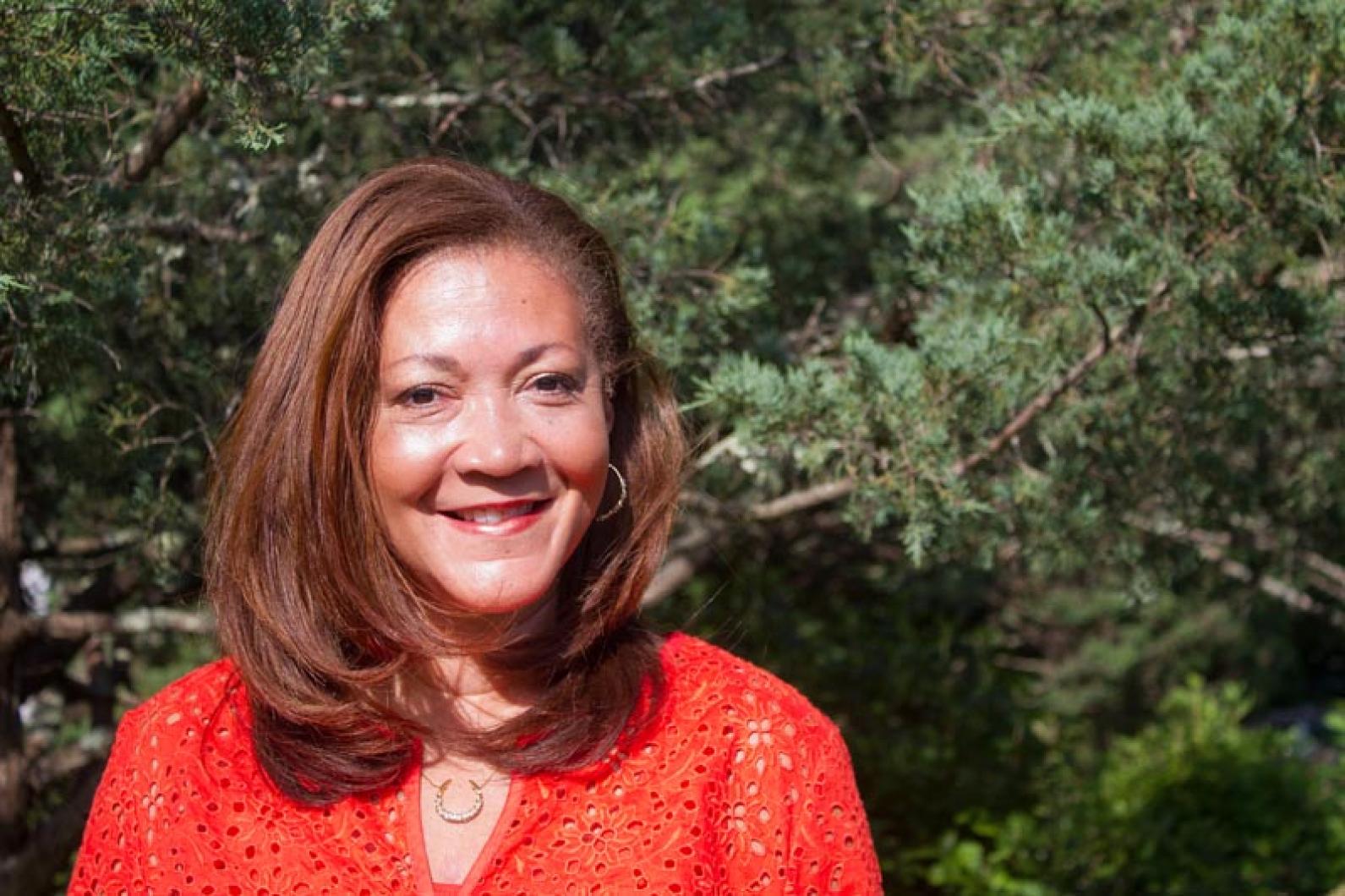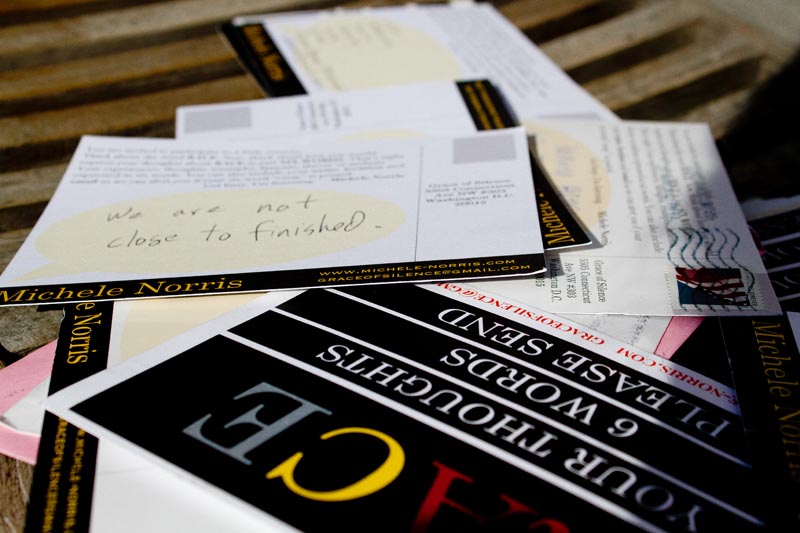Always under the skin of America. White guilt defines my life relentlessly. Never a Nazi, just a German. Marry white to dilute brown. Glad love doesn’t come in colors.
Six words to define how you feel about race may seem far too short for such a complex topic, but this is the philosophy behind the Race Card Project, an online forum meant to restart a conversation that some say has been left by the wayside in America. Project founder and longtime summer visitor Michele Norris said her six words change all the time.
“I always tell people you can put down more than one,” she said over coffee this week. “It used to be ‘fool them all not done yet’ . . . but the six that I come back to time and time again are ‘still more work to be done,” she said counting off the words with her fingers, weighing each one with an equal measure of respect.
Ms. Norris, host of NPR’s All Things Considered, will be speaking about the project at the NAACP Jazz Brunch on Sunday at Hooked in Oak Bluffs. Tickets are $65.
The project began two years ago when Ms. Norris was touring the country to speak about her memoir The Grace of Silence. But what began as a book tour quickly turned into a listening tour, as people approached Ms. Norris with their own stories about race. She listened, reflected and left behind postcards, asking people to write down six words about race.
Nearly two years later, Ms. Norris has received over 10,000 responses via postcard and online submissions. Now she’s sifting through the entries, archiving, displaying and contemplating the messages.
“All of those things are really important, people took the time to do this,” she said. “We’re all busy and the fact that 10,000 people chose to participate, I have to honor that.”
The messages “pull you into this conversation,” she added, the most interesting of which “are the ones you never hear.”
Ms. Norris said she learns something every time she reads a new card or entry.
“They are not monumental discoveries . . . these are little teeny discoveries about how granular this is and how people wrestle with [the topic of race],” she said.
“I went into this thinking no one wanted to talk about race — I was wrong,” she said. “A lot of people do want to talk about it but don’t have the forum, they don’t want to be judged, they don’t want to engage in finger-pointing. They see screaming matches on cable television and think, why would I want to participate in that?”
She described the conversation as a “constant breeze,” often framed in binary terms and anything but black and white. Displaying the cards online allows people to see the conversation on multiple levels, she said, sometimes ones they did not know existed.
“People signed their names and in most cases they not only signed their name but they shared their contact information, which to me says they have more to say,” she said.
Ms. Norris is now following up with some of those people.
“Some of them stop you dead in your tracks,” she said. “One that came in said, ‘black children cost less to adopt.’”
She continued: “I’m still doing research . . . but I’ve talked to people around the country that have confirmed this, these people noticed the same thing and quietly went ‘ick’ and never said anything about it,” she said.
Some of the messages were “very, very raw,” Ms. Norris said. Several cards were about people finding white robes in their attics and discovering that someone in their family was a member of the Ku Klux Klan. Others reacted to current events. After the Trayvon Martin incident in Florida, the conversation grew so heated and voluminous that it crashed the Race Card Project website. Ms. Norris said the project became a “harbinger” for expression before the Trayvon Martin story broke nationally.
“What I realized was it was one of those moments . . . where your own reaction was based on personal life experiences, in some cases your zip code, your social standing,” she said. “But it was a moment that suddenly allowed everyone to look into other people’s windows.”
Documenting reactions like these are at the heart of the project and historically important, Ms. Norris said.
“We’re going to be studying this period in significant ways . . . years from now,” she said. And with 10,000 voices helping to tell the story, she believes the Race Card Project will become an “incredibly rich database.”
The Jazz Brunch: It’s A Family Affair with the Orren Evans Trio and Michele Norris is from 11 a.m. to 3 p.m. at Hooked in Oak Bluffs. Tickets are available at ticketsmv.com. For more information on The Race Card Project and to submit your own entry, visit theracecardproject.com.





Comments
Comment policy »